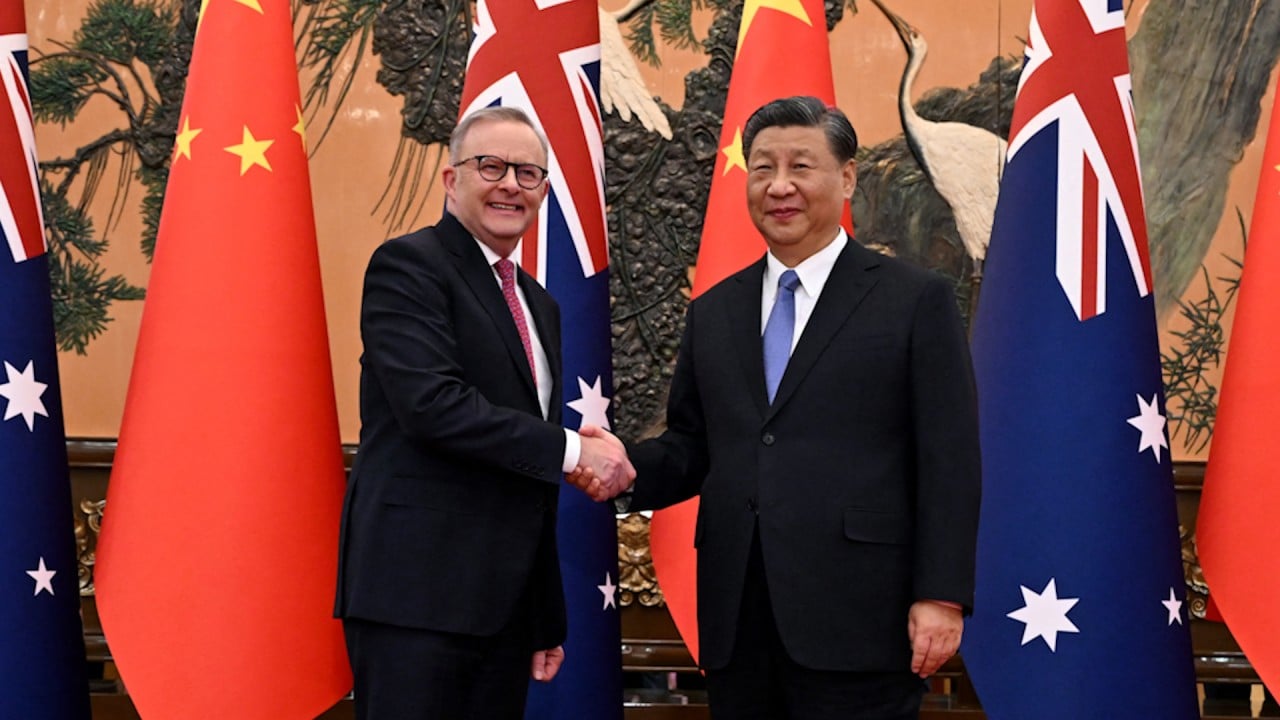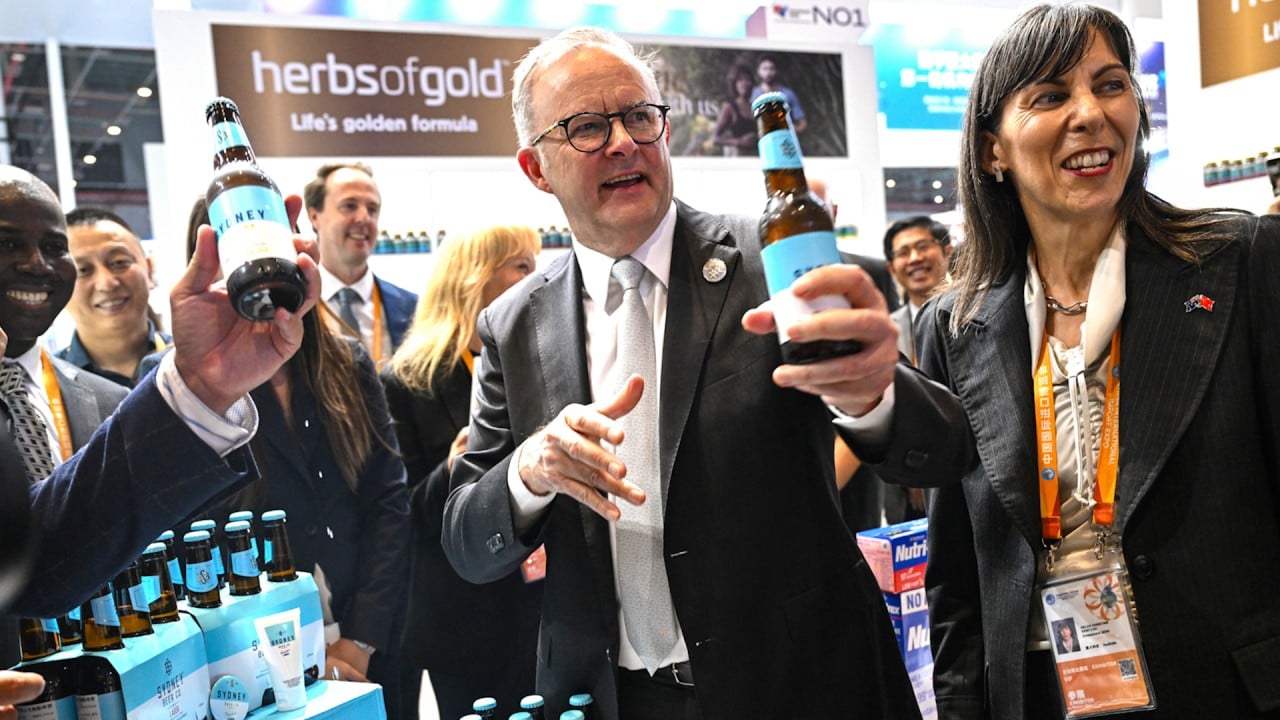
Xi Jinping tells Anthony Albanese China-Australia ties are now ‘on the right path’
- Chinese leader meets Albanese in Beijing as both sides aim to mend strained relations
- Xi takes aim at ‘attempts to destabilise the Asia-Pacific region’, without mentioning Aukus or the Quad security alliances
Beijing and Canberra should be “partners of mutual trust and fulfilment”, Chinese President Xi Jinping told visiting Australian Prime Minister Anthony Albanese during the first trip to China by an Australian leader since 2016.
Albanese was joined by Trade Minister Don Farrell during the four-day visit in what was seen as a trade-focused effort to restore relations strained by disputes over Chinese telecoms firm Huawei, espionage and the Covid-19 pandemic.
Xi said bilateral ties had now “embarked on the right path of improvement and development”, adding that exchanges had resumed and some problems had been worked out, according to state broadcaster CCTV.
“The two countries have no historical grudges or fundamental conflicts of interest,” Xi said.
“China and Australia should follow the trend of the times and build a China-Australia relationship based on the common interests of the two countries, in which we treat each other as equals, seek common ground while reserving opinions over differences, and engage in mutually beneficial cooperation.”
Xi criticised what he said were moves to forge “exclusive cliques, group politics and bloc confrontation” in the Asia-Pacific region, saying such small groups could neither solve the great challenges the globe was facing nor adapt to the great changes taking place in the world.
“About these attempts to destabilise the Asia-Pacific region, we must both be vigilant and oppose them,” Xi said, without mentioning Aukus or “the Quad”, another geopolitical security group comprising Australia, the United States, Japan and India.
Australia’s Albanese to be ‘direct’ with Xi over South China Sea in Beijing talks
Albanese said Australia had an interest in the continued stable growth of the Chinese economy, and its ongoing engagement with the world, according to a statement from his office.
“And I believe that we can all benefit from the greater understanding that comes from high-level dialogue and people-to-people links,” he said.
“Where differences arise, it is important that we have communication. From communication comes understanding.”
Before the meeting, Albanese suggested that Xi was a man of his word. “He has never said anything to me that has not been done,” Albanese said.
Xi also suggested to Albanese that the two countries make full use of the potential of the China-Australia Free Trade Agreement and expand cooperation in emerging areas such as climate change and the green economy, and third-party cooperation to help South Pacific island nations.

He said “decoupling, supply chain restructuring or de-risking” moves were essentially protectionism that was contrary to free markets, and pledged China would uphold its opening strategy.
Also on Monday, Chinese Foreign Minister Wang Yi met his Australian counterpart Penny Wong. The two last met in July on the sidelines of the Asean summit in Jakarta, Indonesia.
“Every time we meet, the process of mutual understanding and improvement of China-Australia relations moves a step forward,” Wang was quoted by Chinese state media as saying.
China’s Pacific aid mostly goes to its allies, Australian think tank says
The two countries had a “mature relationship” that was “energised by the complementary nature of our economies”, Albanese said at the expo, which has attracted more than 3,400 exhibitors, including more than 200 Australian companies.
Farrell said after a meeting with his Chinese counterpart Wang Wentao on Saturday that he expected impediments on Australian seafood and red meat products to be removed “in a very short space of time”, while Li promised that China would further expand market access and imports.
Albanese has seen success in relieving economic tensions between China and Australia. Most trade barriers imposed over a diplomatic dispute in 2020, which had cost Australian exporters A$20 billion (US$13 billion), have since been lifted.
According to Koh King Kee, president of international relations think tank Centre for New Inclusive Asia, Albanese was a “very pragmatic politician”, prioritising economic considerations over military matters in the latest round of talks with Beijing.
“There is no alternative to China’s huge consumer market, and given the growing middle class, demand for imported goods is only going to increase,” Koh said, adding that many Australian goods, including wine, red meat and seafood, relied on sales in China.
But China-Australia trade and Australia’s military alliances, such as Aukus, were separate issues, and little would change regarding the latter, he added.
Albanese and his delegation conclude their China trip on Tuesday.




